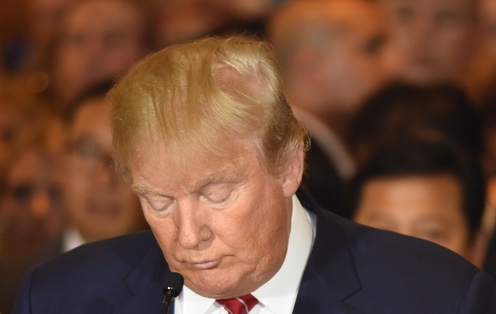What the Trump era can really teach us about race and gender

How my attitude about race changed. When I was a young teenager I was blissfully ignorant about race, and I thought that is how I and everyone else should be. I thought that was the correct way to not be racist. Race shouldn’t matter. This attitude led some of my friends to point out that the only ones bringing up race all the time were minorities. Some even said it proved that minorities are actually more racist than we are.
I still have some sympathy to those who hold this point of view because I know when I held this view, I held it without malice or hatred. I simply held it in ignorance. I was, in fact, nearly completely ignorant of what it was like to be a person of color living in America. I thought it should be a lot like being me in America.
Race was not the only subject about which I lacked awareness. I also did not understand much about gender discrimination, and it was my own personal experience with being a woman in a male dominated workplace that helped me evolve my outlook on race as well as gender and how it impacts opportunities.
In my twenties, I was hired by a man in his sixties to serve as his deputy director. He was a nice man. He described himself as an old hippie. He said I was the same age as one of his daughters. About a week after he hired me, he mentioned that all the directors and deputies ate lunch together nearly every day. He said, since I was his deputy, I should come along one day, but then he hesitated and said he would check first with the others.
He mentioned bringing me to the director’s lunches many times – after he had come back from lunch, but more than six months past before he actually extended an invitation to me. The day I went to lunch with him, I was surprised to walk with a handful of co-workers to a run-down Chinatown restaurant, where I was handed a $5 dollar special lunch menu. Once seated, my co-workers seemed to one-by-one ask me questions about my commute, my family, and my office furniture. The same kinds of questions they’d all asked me before whenever we would share an elevator, or be sitting next to each other waiting for a meeting to begin. I sat there at the lunch, uncomfortably sipping water and eating cheap fried rice and wondered why on earth these men would spend their lunch hour this way. At one point, I looked up from my plate of rice, and watched them exchange looks to each other, with a head nod in my direction as if to say, you ask her something.
I quickly looked down at my plate, and then, while pushing a piece of shrimp out of my fried rice, a light-switch finally went on in my head. I looked back up again at my co-workers, and finally saw them. Each one was male, and each one was close to sixty years old. I was the only woman. I was in fact, the only female deputy director in agency history.
So, my colleagues were a bunch of old white guys in their sixties and they didn’t want me to have lunch with them, but, since this was a “director’s lunch,” and a lot of business was discussed, my boss felt he should bring me. I was starting to understand – without me in attendance, this was not at all the way these lunches were. I don’t know how long it took, but I sat there re-living dozens of awkward interactions, and halted conversations, and abruptly stopped laughter when I walked into rooms. Then I thought about other interactions, before my current job. I thought of the interviewer who asked how I would deal with an all-male environment, and the sexual harassment before that, and the abuse before that. I felt my face grow red and burn with shame at my own unawareness. I couldn’t bring myself to look back up from my rice at my co-workers.
After that lunch my boss said we should do it again sometime, but he never actually invited me again. During my next four years as Deputy, and my two years after that as Director, I noticed every time a conversation stopped when I walked in the room. I noticed when I was not invited to attend a meeting or a training, and when all the other Directors traveled together to a meeting. I noticed these things, but I stayed silent. I was grateful to be working for a man whose progressive ideology led him to hire me despite his discomfort.
I noticed he was rare. I also noticed that 95 percent of senior executives in my field (which was the federal government) were older white men, and they tended to hire older white men. When I heard, years later, the government was launching intiatives to hire more women into the senior executive service, I felt a rush of hope.
Many of my older white male colleagues complained about being forced to hire unqualified women, and they called it reverse discrimination. But, this is what I knew, and this is what I had learned, as long as 95 percent of upper management was white older men, women would not make significant inroads into management without definitive action. Maybe, race and sex should be no big deal, but race and sex can only be no big deal after equality is achieved. Until then no progress will be made without people bringing it up all the time, and fighting for progress.

Cheryl Kelley lives in the DC area with her husband and young son. She is active in government and politics.
